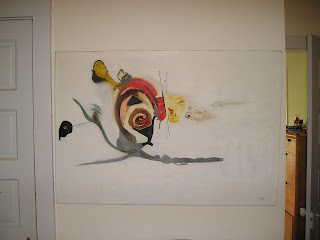Emotional in the sense an agenda is in control. I don’t know at this time whether he is promoting any particular point of view; whether it be Christian, which I suspect, or paganism. He alludes to but I don’t think he embraces Hinduism, Buddhism, Yoga, the issues of the Mahabharata, or for that matter Manicheanism, Gnosticism, Platonism and several others. He does seem anxious to resolve the “stresses” into a “grand unified theory” subsuming all opposing spirits. He seems to write knowing the conclusion is foreordained, thus making his purpose suspect.
We argue the known outcome in order to have something to say! Noise! “Sound and fury signifying nothing.” Which is not to say his scholarship is not of the highest order of professionalism.
But anyhow, its hard to ignore the comparison of this work to Kierkegaard’s. An audacious question: Is Tristan and Iseult (the opera) to Rougemont as Don Giovanni was to Soren Kierkegaard?
On Good/Evil he assigns human agency, the Christian view. This is common practice and, in my opinion, a fallacy. Personhood does not necessarily pertain to the divine or the profane but is a reflection that man only understands, or rather, has knowledge of himself so God and Satan must be measured in terms thereof. Its simpler to accept Reality evolved to the world we see, are embedded in and will ever remain a mystery that, also ever, engenders discovery. Why must there be agency at all? Sure Good and Evil are real even without the “myths” adopted in order that we can easily grasp them on familiar terms. It is not necessary that understanding follows always from measurement in terms of human metrics. To do so merely reinforces the fact that man is self absorbed, self centered and not interested in Truth in and of itself. Divinity is not “personal” [to a God Head]. Divinity is universal, not finite but infinite. A Lord, The Lord, taking on the cloak of divinity is leaving the “person” aside and assuming the infinite quality of the divine in the same way a rose assumes the infinite quality of beauty. It is full self-realization.
Again, the rose is not itself beauty but beautiful. Rather it participates in, is a manifestation of beauty. Likewise things manifest are not the universe itself, but the universe, the Real – G_d, if you like – is made manifest in them. Divinity is thus made manifest in [all] man, sentient life forms especially. The Word is made flesh and Life is a tool in his box.
How long must we mistake measurement for understanding?

